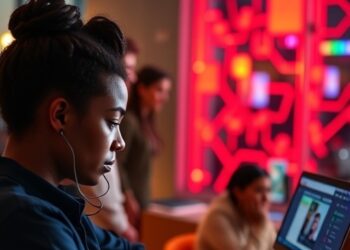Restricting use in bedrooms and at mealtimes have the biggest impact, but modeling good behavior is also important.
Restricting use in bedrooms and at mealtimes have the biggest impact, but modeling good behavior is also important.
For many parents, it can feel like curbing kids’ screen use is a losing battle. But new research from UC San Francisco (UCSF) has found the parenting practices that work best to curb screen time and addictive screen behavior: restricting screens in bedrooms and at mealtimes and modeling healthy practices at home.
Researchers asked 12- to 13-year-olds how often they used screens for everything but school, including gaming, texting, social media, video chatting, watching videos and browsing the internet; and whether their screen use was problematic.
Then, they asked parents how they used their own screens in front of their kids, how they monitored and restricted their kids’ screen use, and whether they used it to reward or punish behavior. They also asked about the family’s use of screens at mealtimes and the child’s use of screens in the bedroom.
Using screens in bedrooms and at mealtime were linked to increased time and addictive use. But use went down when parents kept track of and limited their kids’ screen time, and when they modeled healthy behavior themselves.
“These results are heartening because they give parents some concrete strategies they can use with their tweens and young teens: set screen time limits, keep track of your kids’ screen use, and avoid screens in bedrooms and at mealtimes,” said Jason Nagata, MD, a pediatrician at UCSF Benioff Children’s Hospitals and the first author of the study, publishing June 5 in Pediatric Research. “Also, try to practice what you preach.”
Refining AAP guidance
The study analyzed the effectiveness on tweens of parenting strategies recommended by the American Academy of Pediatrics’ (AAP) for children and adolescents aged 5 to 18 years old. It is one of the few studies to examine how parenting practices affect screen use in early adolescence, when children start to become more independent.
“We wanted to look at young adolescents in particular, because they are at a stage when mobile phone and social media use often ramps up and sets the course for future habits,” Nagata said.
The researchers collected data from 10,048 U.S. participants, 46% of whom were racial or ethnic minorities, from the Adolescent Brain Cognitive Development (ABCD) study.
Parents were asked to rate, on a scale of 1 to 4, their level of agreement with such statements as, “My child falls asleep using a screen-based device.”
The researchers then looked to see how the level of parental agreement predicted the children’s daily screen time, and found it went up 1.6 hours for each additional point related to bedroom screen use. The same held true for using screens at mealtimes, which added 1.24 hours. Poor modeling by parents added 0.66 hours.
Limiting and monitoring their kids’ screen time reduced it by 1.29 hours and 0.83 hours, respectively. But using screen time as either a reward or a punishment was not effective, resulting in 0.36 more hours, as well as more problematic video game use.
Used in moderation, screens can help maintain social connections and foster community, but especially for children, problematic use can lead to mental health problems, as well as physical inactivity and problems with sleep.
“Screen time at bedtime displaces sleep time, which is essential for health and development in young adolescents,” Nagata said. “Parents can consider keeping screens outside their children’s bedroom and turning off devices and notifications overnight.”
Authors: Additional UCSF co-authors are Angel Paul, Felicia Yen, Zacariah Smith-Russack, Iris Yuefan Shao, PhD and Abubakr A.A. Al-shoaibi, PhD.
Funding: The work was supported by grants from the National Institutes of Health (K08HL159350 and R01MH135492) and the Doris Duke Charitable Foundation (2022056). The ABCD Study was supported by the National Institutes of Health and additional federal partners under award numbers U01DA041022, U01DA041025, U01DA041028, U01DA041048, U01DA041089, U01DA041093, U01DA041106, U01DA041117, U01DA041120, U01DA041134, U01DA041148, U01DA041156, U01DA041174, U24DA041123, and U24DA041147.
About UCSF Health: UCSF Health is recognized worldwide for its innovative patient care, reflecting the latest medical knowledge, advanced technologies and pioneering research. It includes the flagship UCSF Medical Center, which is a top-ranked hospital, as well as UCSF Benioff Children’s Hospitals, with campuses in San Francisco and Oakland; Langley Porter Psychiatric Hospital; UCSF Benioff Children’s Physicians; and the UCSF Faculty Practice. These hospitals serve as the academic medical center of the University of California, San Francisco, which is world-renowned for its graduate-level health sciences education and biomedical research. UCSF Health has affiliations with hospitals and health organizations throughout the Bay Area. Visit https://www.ucsfhealth.org/. Follow UCSF Health on Facebook or on Twitter
###
Follow UCSF
ucsf.edu | Facebook.com/ucsf | Twitter.com/ucsf | YouTube.com/ucsf
Journal
Pediatric Research




